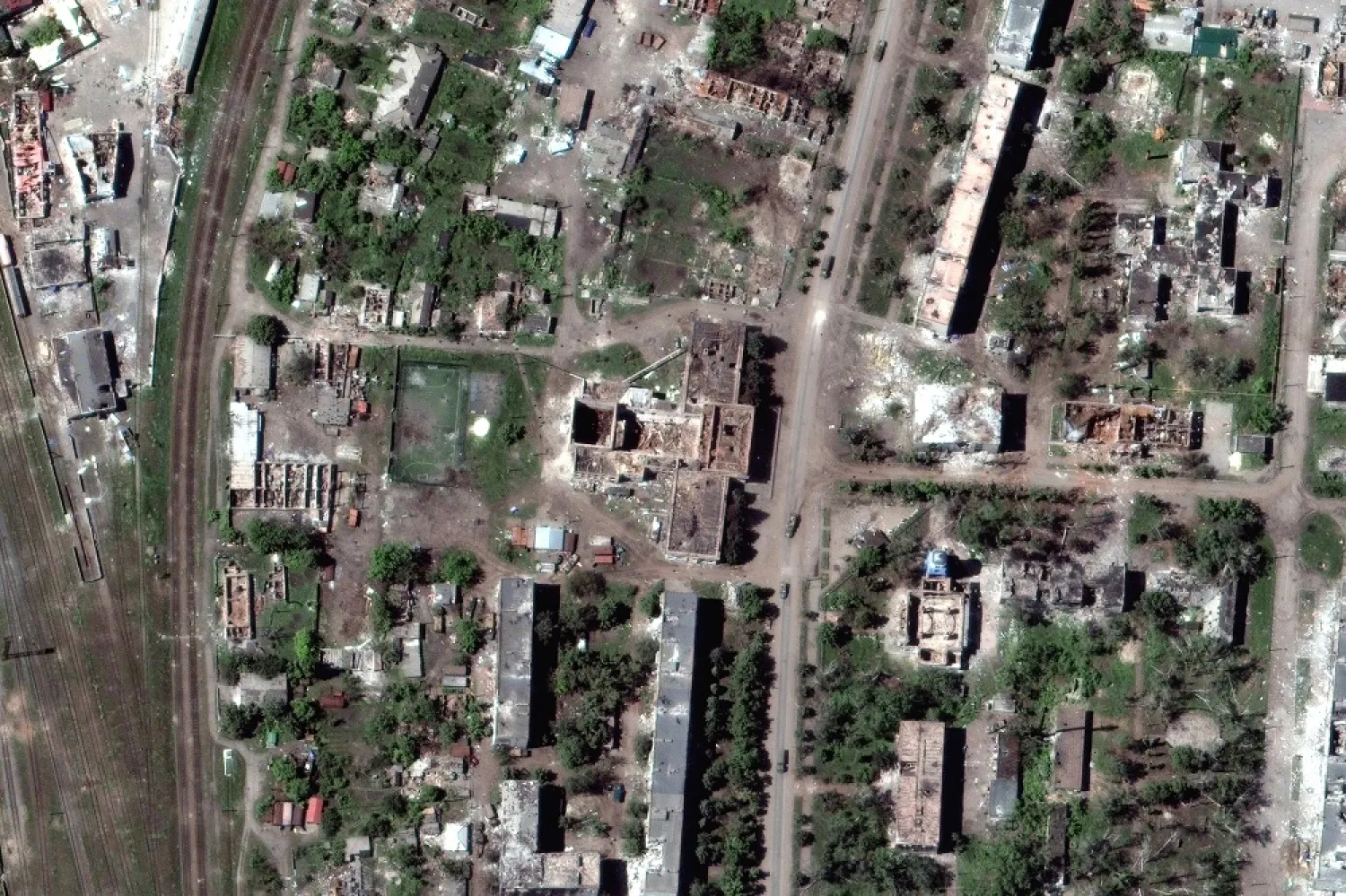Ukrainian troops holding out in the ruins of Sievierodonetsk came under renewed heavy assault on Wednesday from Russian forces who see the capture of the industrial city as key to control of the surrounding Luhansk region.
In southern Ukraine, another major battleground in the war, authorities said Russian attacks on agricultural sites including warehouses were compounding a global food crisis that has stirred concerns of famine in some developing countries.
Turkey hosted Russia's foreign minister to discuss a UN plan to open a corridor in the Black Sea for Ukrainian grain exports. Russia's Sergei Lavrov said Ukraine must first de-mine its ports - a move Kyiv fears would make it more vulnerable to attacks from the sea.
Russian forces have been focused for weeks now on seizing Sievierodonetsk, which was home to some 106,000 people before Moscow invaded Ukraine on Feb. 24. The Luhansk region's governor said Ukrainian forces would not surrender the city.
"Fighting is still raging and no one is going to give up the city, even if our military has to step back to stronger positions. This will not mean someone is giving up the city - no one will give up anything. But (they) may be forced to pull back," Serhiy Gaidai told Ukrainian television.
Russian forces will further increase their shelling and bombardment of both Sievierodonetsk and its smaller twin city of Lysychansk on the west bank of the Siverskyi Donets River, he said.
Luhansk and the adjacent province of Donetsk form the Donbas, claimed by Moscow for Russian-speaking separatists who have held eastern parts of the region since 2014.
"The absolutely heroic defense of Donbas is ongoing," Ukrainian President Volodymyr Zelenskiy said in a video statement on Tuesday. "...The occupiers didn't believe the resistance of our military would be so strong and now they are trying to bring in new resources towards the Donbas."
Reuters could not independently verify the situation on the ground in Sieverodonetsk.
Moscow says it is engaged in a "special military operation" to disarm and "denazify" its neighbor. Ukraine and allies call this a baseless pretext for a war that has killed thousands, flattened cities and forced millions of people to flee.
'God save me'
Russia has turned its focus to the Donbas region since its forces were defeated on the outskirts of Kyiv in March.
Zelenskiy's office said two people were killed and two wounded in the Luhansk region in the past 24 hours, five civilians were wounded in the Donetsk region, and four killed and 11 wounded in the Kharkiv region.
In Sloviansk, one of the main Donbas cities still held by Ukraine, about 85 km (53 miles) to the west of Sievierodonetsk, women with small children lined up to collect aid while other residents carried buckets of water across the city.
Most residents have fled but authorities say around 24,000 remain in the city, in the path of an expected assault by Russian forces regrouping to the north.
"I am going to remain, I will not leave without my husband. He works here. That's what we decided, we are staying," said Irina, who did not provide her surname, as she waited with a child in a stroller outside an aid distribution center.
Albina Petrovna, 85, described the moment her building was caught in an attack, which left her windows shattered and her balcony destroyed.
"Broken glass fell on me but God saved me, I have scratches everywhere...," she said.
In Kharkiv, Ukraine's second-largest city, residents were cleaning up rubble from shelling the previous day. Ukraine pushed Russian forces back last month from the city's outskirts, but Russia still strikes it sporadically.
"Everything is destroyed. We are removing equipment, there will be no business here for now," said Viacheslav Shulga, an employee at a pizzeria in northern Kharkiv hit by the latest strike.
'Book of Executioners'
Zelenskiy said Ukraine would launch next week a "Book of Executioners" to detail war crimes.
Ukraine has opened more than 16,000 investigations into possible war crimes, has filed eight court cases and identified 104 suspects, its prosecutor general said on Wednesday.
Russia denies targeting civilians in Ukraine and rejects accusations that its forces have committed war crimes.
The conflict is having a massive impact on the world economy. Ukraine is one of the world's biggest exporters of grain, and Western countries accuse Russia of creating a risk of global famine by shutting Ukraine's Black Sea ports. Moscow denies blame and says Western sanctions are responsible for food shortages.
Ukraine's southern military command cited attacks on farmland and other agricultural sites in the Mykolaiv region as particularly damaging.
Russia's Lavrov, after meeting his Turkish counterpart Mevlut Cavusoglu, said Moscow was ready to guarantee the safety of vessels carrying grain from Ukrainian ports, in cooperation with Turkey.
"To solve the problem, the only thing needed is for the Ukrainians to let vessels out of their ports, either by de-mining them or by marking out safe corridors. Nothing more is required."
Ukraine says mines are needed to protect its ports from Russian attack. Lavrov said President Vladimir Putin had personally promised not to use the grain shipment issue to benefit Russia's military operation.
Turkey, a NATO member with good relations with both Russia and Ukraine, has been trying to broker peace negotiations. Cavusoglu said further talks were needed on ways to facilitate Ukrainian grain exports via the Black Sea.
Russian Defense Minister Sergei Shoigu said this week the Russian-occupied Ukrainian ports of Berdyansk and Mariupol were ready to resume grain exports. Ukraine says any such shipments from territory seized by Moscow would amount to illegal looting.









